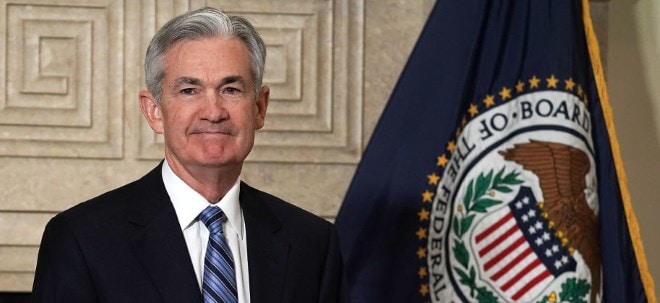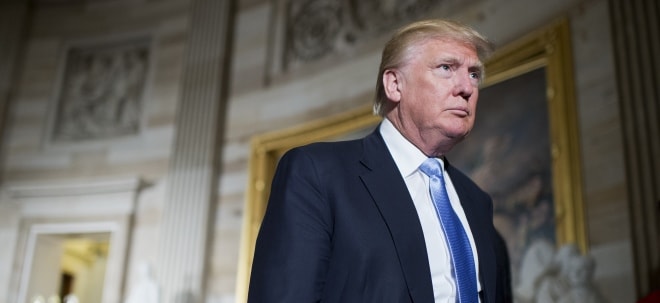http://www.business24-7.ae/articles/2009/3/pages/...cd155451be5d.aspx
Zitat: ....with few new sources of gold being discovered globally, the total amount of the yellow metal coming into the world markets annually has been about 3,500 tonnes for some time now, said the head of the World Gold Council (WGC).
In an interview with Emirates Business, Aram Shishmanian, CEO of the WGC, said that although this has restricted supply the market fundamentals remain strong.
Additional sale of scrap in the markets can slightly strengthen supplies and affect prices, he said. He does not expect the European central banks to sell huge amounts of gold this year but said that the International Monetary Fund (IMF) has excess gold in its reserves.
As the CEO of the WGC, Shishmanian has been trying to stimulate the demand for gold. He said the Middle East is particularly an attractive destination for launching exchange traded gold products. The recent launch of Dubai Gold Securities (DGS) at Nasdaq Dubai was a World Gold Council initiative, he added, and cross-listings of the product is being planned in the regional markets.
You have said that the DGS launched at Nasdaq Dubai may be cross-listed on other exchanges. Could you tell us where these cross-listings are planned?
We believe we can cross-list the product on other exchanges in the Middle East, particularly in Saudi Arabia. As part of the WGC strategy for exchange traded gold, we have key partners worldwide. We can use them to cross-list the product. We may do so in partnership with Mubasher (the Saudi Arabia-based investment analysis company).
Whose initiative was it to launch the DGS at Nasdaq Dubai?
It was our initiative at the WGC, and we started on it nine months ago. It took us a lot of time to get the regulatory approval. And then it took us a good period of time to get the Shariah approval. Several journalists told us we were late. But then we are happy that we are finally here.
What brings you to the Middle East?
The demand for gold in the region has recorded one of the fastest growth rates in the world. The demand for gold for investment purposes rose an astonishing 138 per cent in the fourth quarter of 2008. People are increasingly seeing it as an asset. If the Middle East investors decide to increase their share of investments in gold by one per cent that will mean billions of dollars flowing into gold. I cannot comment on the expected gold prices, but the feedback we have had from the markets so far has been very encouraging.
So what role will gold play in GCC economies?
I expect gold to play a prominent role in the GCC monetary union. It may play a role in the basket (of currencies on which the GCC common currency will be pegged).
Furthermore, the GCC central banks, along with the central banks of the fast growing economies of Bric (Brazil, Russia, India and China) countries that have low percentage of gold reserves may look forward to increasing their gold reserves.
And what role will you play in the region's gold trade now that the DGS has been launched?
You do not see our name much as we do not directly deal in gold. The role of the gold council is to stimulate a sustained demand for gold. We want more investment in the yellow metal. We work with the jewellery sector and the governments. We help the governments with new regulatory policies to help them make gold available in their markets. We recently worked with the Chinese Government. We are commerce driven but not a profit driven organisation. Our representatives will be keeping a tab on the performance of the DGS.
The Central Banks Gold Agreement (CBGA) is to expire in September this year. Do you see the European central banks selling gold before the deadline and thus leading to a crash in gold prices?
I do not expect central banks disposing of much gold this year. I think they will hold on to it. Anyway, the maximum amount of gold they can dispose of is 500 tonnes, which is a pittance compared to the global gold trade figures. I expect the banks to renew the CBGA.
Do you see the IMF selling its gold in the market?
The IMF has accumulated excess gold in its baggage because economies were booming globally not long ago and its money was not required. Given the current conditions, they need to reassess their strategy. However, I cannot comment on what they will do.
A GCC central bank typically has two to 13 per cent of its total reserves in gold. Do you think these banks will increase their gold reserves?
The current wisdom for central banks is that if they have more than 20 per cent of their reserves in gold, they are overweight. Central banks with low reserves of gold are looking forward to increasing their reserves. They are trying to analyse what the right balance should be. They are getting aggressive. And this includes the banks in the Middle East and in the Bric countries.
In contrast, some countries hold 80 to 85 per cent of their reserves in gold. This includes Switzerland. The US Central Bank also has a high gold reserve. These banks also need to readjust their strategy.
What impact do rumours have on gold prices? Prices recently dropped on a rumour that a large part of Japanese aid to Sri Lanka was to be made in gold.
Rumours and speculation do play a role in the gold market, as is the case with any other market. Determining the gold price is therefore a complex equation.
How much additional gold is coming into the markets annually?
About 2,500 tonnes of gold come from mines. Central banks account for 500 tonnes and another 500 tonnes come from scrap or recycled gold. If gold prices increase, additional scrap may begin to get sold in the markets. The underlying economics of supply and demand is therefore good. The total amount of gold mined so far is about 160,000 tonnes, which can fill about two Olympic size swimming pools.
Is there a way to increase gold supply into the markets? What about new supplies from mines?
Very few mines of gold are being found. When a gold deposit is found the period to get that deposit into production is five to 10 years. It requires huge capital investments. Some mines in South Africa are five miles deep. So not much new supplies are coming up. Scraps can be used to increase supply in the markets, but there is a limit to it. It is only one of the means of increasing gold supply to the markets – through the sale of additional scrap. However, since this scrap comes from people, there will be a limit to how much additional supplies can come in from scrap. People will not keep selling gold if prices fall.
What are your responsibilities as the WGC chief?
It is the long-term mission of the WGC to remove the barriers to investing in gold across the globe. As financial turmoil continues all over the world, investors are wondering where their money will be safe. Gold has represented an important currency for thousands of years and it is a major store of value for governments, institutions and individuals alike. As a physical asset, gold is no one's liability and is not exposed to financial market or corporate failures. Having an allocation to gold is like an insurance policy. Gold's value as an asset becomes most obvious when it is most needed. With future inflation looming, gold's ability to preserve wealth will become key.
Tell us more about the DGS.
The Dubai Gold Securities offer investors simple, secure and Shariah-compliant access to gold bullion investment without the additional costs normally associated with insuring, storing and transacting in physical gold. Each security is 100 per cent backed by physically allocated gold held in safekeeping by an independent custodian, which is the HSBC. The gold is stored in the bank's London vaults. One share represents an initial interest of one-tenth of a fine troy ounce of allocated gold bullion.
The Dubai Gold Securities will be marketed in the UAE by Dubai Commodity Asset Management, a wholly owned subsidiary of the DMCC licenced by the UAE Central Bank, which develops and distributes commodity-linked investment products. HSBC will act as the primary market maker for Dubai Gold Securities. Investors can trade in Dubai Gold Securities through registered Nasdaq Dubai brokers.
PROFILE: Aram Shishmanian CEO, World Gold Council
Shishmanian joined Accenture (formerly Andersen Consulting) in 1976 and became a partner in 1987. At Accenture, he held a number of leadership roles, including Global Managing Partner of the financial markets industry practice.
On retiring from Accenture in 2003, Shishmanian began serving on the boards of several prominent asset management companies. He later joined the World Gold Council. He has been a Trustee of Marie Curie Cancer Care and a member of the International Advisory Board of the Cass Business School and City University.
In addition to his role as CEO of World Gold Council, Shishmanian continues to be an independent member of the International Executive of Lovells, one of the leading global law firms. He holds a BA in Economics with Honours and an MBA... |


 Thread abonnieren
Thread abonnieren

